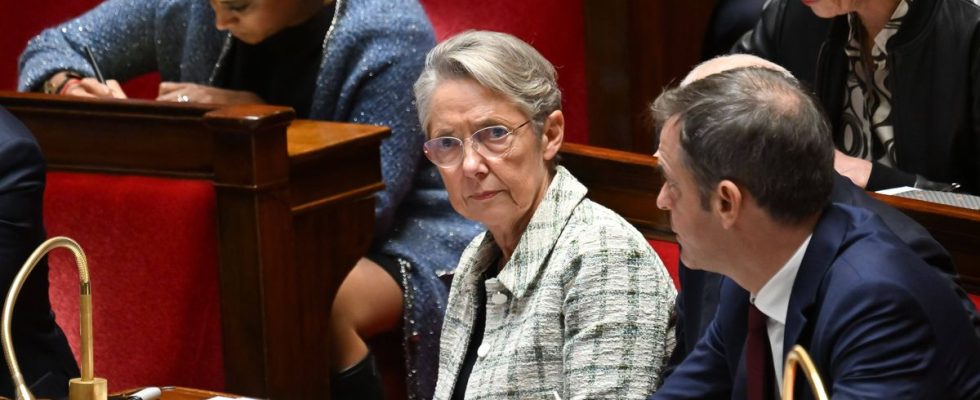The outcome being unsurprising, it was a vote which hardly mobilized the deputies. The public finance programming law for the period 2023-2027 was definitively adopted on Wednesday by Parliament, via the rejection of a motion of censure in the National Assembly in a sparse hemicycle.
This text establishes a multi-year financial management framework, not to be confused with the State and Social Security budgets for 2024, the parliamentary examination of which is still in progress.
For Borne, this law ensures “our sovereignty”
Lacking an absolute majority in the Assembly, the government resorted to article 49.3 for adoption without a vote, prompting in response the motion of censure examined on Wednesday, the 25th for Élisabeth Borne. Co-signed by deputies from La France Insoumise, communists and environmentalists, it suffered the same rejection as the previous ones, with 143 votes out of the 289 required to bring down the government.
The law thus adopted is “necessary for our country”, the Prime Minister pleaded before the deputies, because it ensures “our sovereignty” and “opens the way to major investments for the ecological transition”.
This text expects a public deficit to be reduced to 2.7% of GDP in 2027, below the European objective of 3%. The Senate had demanded, in vain, that the objective of a return below 3% be set two years earlier, in 2025, and a public deficit reduced to 1.7% in 2027. The government argues that this framework multi-annual is a guarantee of “credibility vis-à-vis our European partners”, and will make it possible to unlock “18 billion euros from the European recovery plan”.
Borne tackles the attitude of LFI
In an Assembly that sounded hollow, Élisabeth Borne once again criticized the Insoumis for their behavior: “If you make this hemicycle the place where all verbal violence is permitted, how can you then be surprised at the trivialization of violence in the daily life of our fellow citizens? “. “You have won the prize of excess, not a patent of opposition, the extreme right was only waiting for that,” she said.
For their part, several opposition deputies warned the government of a possible legal standoff to come, linked to Monday’s recourse to 49.3 on the text adopted Wednesday. The government can only use this constitutional tool once per parliamentary session, apart from its unlimited use authorized on the State and Social Security budgets.
Supported by legal opinions, the presidential camp believes that the 49.3 triggered on Monday does not deprive it of its only cartridge during the current session. Because it would be a continuation of a first triggering at the end of September, on this same programming law, during an extraordinary session. But opposition groups have warned that they will contest this argument if the government uses the constitutional weapon again during the ordinary session, for example on the immigration bill.

